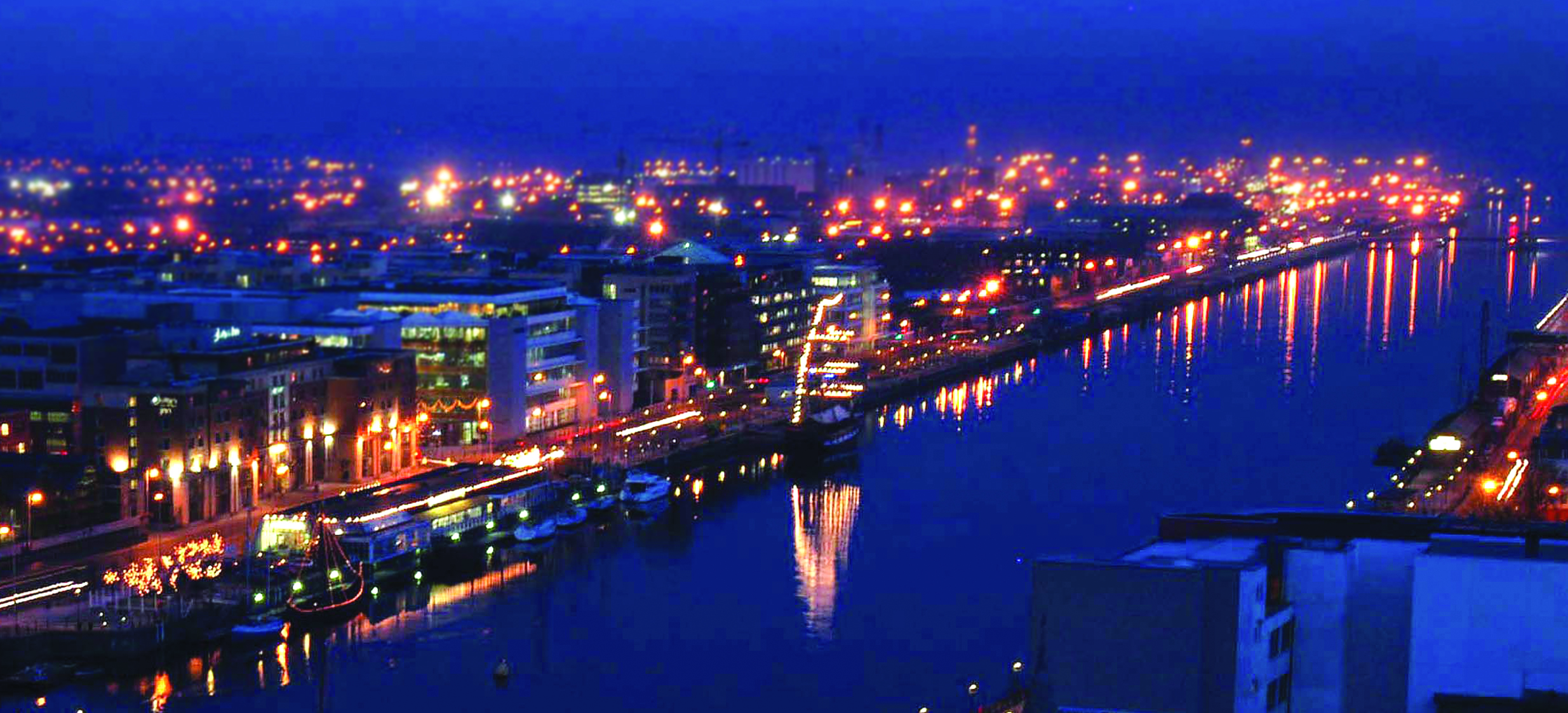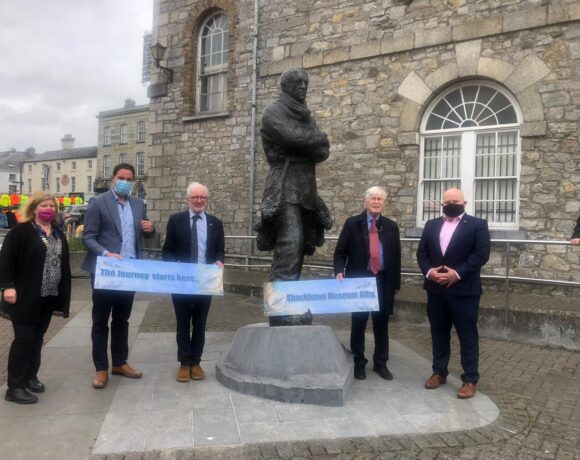Now more than ever we can clearly see that foreign investment has had a remarkable impact on the Irish domestic economy. Multinational companies based in Ireland have been on the receiving end of some unfavourable coverage in recent years. The accusation that they are simply availing of beneficial corporate tax breaks by basing themselves in this country is, however, an unfair one. Due to the fact that multinational companies in this country account for approximately 10% of the workforce, they are therefore of crucial strategic importance for the wider economic climate of Ireland.
What should not be ignored is that multinational companies bring substantial economic benefits to this country in terms of direct employment, capital spend and the development of Irish worker’s skill base. These companies offer substantial and valuable input in the local and wider communities and provide countless jobs for Irish citizens. Ireland remains an attractive location for multinational companies to do business. The IBM Global Location Trends report for last year showed that we remained in pole position for the quality of our foreign direct investment, and ranked in first place for ‘added value’.
The World Bank’s Doing Business 2015 report that was recently published ranked Ireland 13th in a survey of 189 economies for ease of doing business. That ranking represented an improvement of four positions on last year. Our new position places Ireland ahead of other, much-vaunted investment competitors that included Switzerland, the Netherlands and Israel. As it stands Ireland is currently ranked in the top four of global destination countries by estimated jobs-per million inhabitants.
These rankings met a favourable response from IDA Ireland CEO Martin Shanahan who said “Ireland has traditionally been a strong performer in FDI, but what comes through clearly from IBM’s latest and influential report is that the quality of projects won is very high. It is pleasing to see companies not just placing operational roles in Ireland, but also high-value research and development projects in Ireland. This is also happening across a number of sectors, which gives Ireland a welcome balance to its portfolio of overseas investments.”
Mr. Shanahan went on to add “The latest high ranking follows on from Forbes late last year describing Ireland as the best location in the world to do business. In the World Bank report, we are reminded that the ‘nuts and bolts’ of an economy sometimes get much less attention than the overall fiscal and monetary picture. The World Bank is recognising the efforts that Ireland is making to improve the ease of doing business here. Ireland’s improving score for ease of doing business will be positively received by potential international investors.” Back in 2011, at a time when employment was difficult to come by for many in this country, multinational companies in Ireland created over 13,000 jobs.
According to statistics from that year, that number represented an increase of 20% on the year 2010, when multinational companies generated 10,897 jobs in this country. 2011 saw major multinational companies such as Paypal, Intel, Coca-Cola and Twitter among the major investors in the Irish jobs market. These job creations represented significant and welcome progress at a time of considerable economic instability in Ireland. 2012 was also a promising year for job creation involving multinational companies ,with figures released from that time by IDA Ireland, the agency responsible for attracting foreign investment, reporting that 12, 722 new jobs were created in Ireland.
The following year saw another steady increase in job creation in Ireland with IDA figures showing that 13,367 new jobs were created by their client companies in 2013. Taking job losses into consideration that meant that the net increase in employment was 7,071. That was an impressive increase and meant that 2013 had the highest level of job creation in over ten years. The increase of employment that year was largely in digital media/content, ICT, international financial services, life sciences and business services. The IDA had managed to attract 164 new projects to this country of which 78 were companies investing in Ireland for the very first time.
This was an increase of 18% on 2012 and also included 59 expansions and 27 Research, Development & Innovation (RD&I) projects. Some of the main investors into the Irish jobs economy secured by the IDA in 2013 included Twitter, Deutsche Bank, EMC, eBay, Facebook, Salesforce, Novartis, Vistakon, Zurich, Symantec, De Puy, Yahoo, Sanofi and Indeed.com. There were also a number of corporations attracted to Ireland for the first time in 2013, which included names such as Qualcomm, Airbnb, Tripadvisor, Regeneron, Huawei, FireEye, Grifols, Alexion and Acorn Direct Marketing.
Speaking at the time, Minister for Jobs, Enterprise & Innovation, Richard Bruton TD remarked: “Foreign direct investment plays a key part in the Action Plan for Jobs, and in 2013 we set ambitious targets for 6000 net new jobs and 132 investments by multinational companies. These results show that 2013 was another record year for multinational companies, with targets exceeded and an increase of over 7,000 jobs. This is the third year in a row that jobs growth has exceeded previous records.” He went on to note that: “Multinational companies have played a major role in the 3% employment growth we have seen across the economy in the past year.
Every ten jobs created in multinational companies lead to approximately seven jobs being created elsewhere in the economy in supply and service businesses. There are now two main challenges – to continue and accelerate the growth in multinational companies here, and to maximise the positive impact of these companies on the rest of the Irish economy.”
Speaking at the time the former Chief Executive of the IDA Barry O’ Leary commented on the IDA’s steady progression in bringing foreign investment to these shores. Mr. O’ Leary said: “This is IDA’s fourth consecutive year of job growth and it is very gratifying to see the cumulative increases over that period, which come to over 50,000 gross jobs. IDA is delivering on its plans, as publicly outlined in its strategy, and that delivery has taken place against a very challenging external environment. It was particularly pleasing to see such a high representation of European companies – Deutsche Bank, Sanofi, Zurich and Novartis- in the 2013 project wins.” Mr. O’ Leary also believed that there would be another steady increase in figures going forward into 2014 due to the stronger economic outlook in this country “Ireland enters 2014 in a far stronger position than in recent years and that will bolster the country’s brand image, spurring additional interest from investors.”
As it turned out Mr. O’ Leary’s 2014 predictions were correct as multinational corporations continued to create jobs in Ireland. There were a total of 15,012 jobs created by multinational firms in 2014. The IDA figures for 2014 show that there were 197 investments last year which equalled a 20% increase on 2013. There were also a record 7,131 net jobs added by multinational companies and a total of 7,881 jobs lost. The IDA also reported that there was a significant increase in new investment from foreign companies. In 2014 there were 88 new investors which was a rise of 13% from 2013. There was a significant increase in jobs in the digital media/content, ICT, international financial services, life sciences and business services sectors.
Martin Shanahan, who was appointed as the IDA CEO last year, said that 2014 had been another successful year in bringing multinational business to Ireland. Mr. Shanahan said “Our focus at IDA is real jobs, real companies and real economic impact and in that context 2014 was a very successful year. While the direct jobs created are of course welcome, we are seeing noticeable gains for the wider domestic economy from the investments made by overseas companies we work with.”
Mr. Shanahan also thanked the IDA’s stakeholders, sister agencies, staff and Ireland’s embassy network for their assistance and for achieving such positive results last year. The figures from recent years which show an increase of investment from multinationals in Ireland was also welcomed by the Minister for Jobs, Enterprise and Innovation Richard Bruton TD. Mr. Bruton remarked “The results show that a record 7,131 extra jobs were added by multinational companies supported by IDA in 2014.
This means that 25,000 extra people are at work in these companies compared to 2011 with massive knock-on impact for the economy.” The leading multinationals secured in Ireland in 2014 included Bristol Myers Squibb, Fidelity, LinkedIn, Survey Monkey, Amazon, PayPal, Ericsson, SAP, Johnson & Johnson, Zendesk, Adroll ,New Relic ,West Pharmaceuticals and Airbnb.
The hospitality company Airbnb last month announced that it would be creating another 200 jobs in Dublin as part of their major Dublin expansion. The US company already employs 300 people in the city and the expansion and subsequent job creation is very welcome news. Speaking recently about the new expansion Aisling Hassell, Global Head of Customer Experience and Head of Airbnb in Ireland commented : “It’s been almost one year since we officially opened our Dublin office and we have been really pleased with our progress so far in terms of talent and growth. Our Dublin operation is a core part of the company and we are very excited to be in a position to build on our current success.”
Martin Shanahan IDA CEO.
The IDA CEO Martin Shanahan believes that steady progress can once again be maintained throughout the rest of 2015 and remains positive that Ireland can continue to attract business across a whole range of sectors. Mr. Shanahan stated, “However, all business is hard-won and we need to be vigilant and avoid complacency, particularly in the area of cost competitiveness. The mistakes of the past must not be repeated. A poor growth outlook for Europe will also be a challenge. Finally, the importance of the education and training sector providing a supply of talented graduates cannot be overstated.”
He added “Despite a challenging environment, IDA is confident it can turn in a strong performance in 2015, particularly building on the new strategic direction we will set for the organization.” One of the top priorities for any socially responsible business is to establish and uphold a strong and mutually beneficial relationship with its community. The obvious reasoning for this is that it is at local and community levels that the impact of increased Corporate Social Responsibility activity will be felt in social, economic or environmental terms. Inclusive community participation, collaboration and consultation will result in a host of positive benefits for the company as well as to the surrounding community. Another good reason for a business to maintain an active interest in the community is that it can generate much-needed goodwill and loyalty towards them. Companies are involved in a number of different ways in communities throughout the country.
Their involvement includes proactive social inclusion projects, outreach programmes, staff volunteering initiatives, support for broader health and well-being programmes, fundraising and mentoring among others. As well as providing jobs, many companies also make sure to have a strong presence and involvement in the local community. Some of these current and long running initiatives in Ireland include the following:
Microsoft Ireland – Youth2Work
Microsoft and Fasttrack to IT (FIT) have joined forces to provide IT Skills training for over a decade. As part of this long running programme, last year Microsoft and FIT decided to come together to try to develop a new programme aimed at addressing and tackling the issue of youth unemployment in this country. What came out of this decision was the foundation of Youth2Work and a change of direction and focus for FIT. In order to tackle the issue of youth unemployment, the Youth2Work provides free access to training for young people who are currently unemployed between the ages of 18-25.
The ultimate aim of the programme is to provide young people with useful and marketable IT skills that can help ensure stable full-time employment. Microsoft Ireland and FIT hope that the programme will assist 10,000 young people in three years. They are on track to achieve that goal as in 2014 over 1,800 young people received IT training as part of the Youth2Work programme. Of the 1,800 22% of those youths obtained full time jobs after the program and over 70% either furthered themselves by taking part in internships or returning to full time education. This year the Youth2Work programme intends to run 250 courses and help an additional 5,000 young people.
Vodafone – Vodafone Ireland & Young Social innovators ‘Go Do’ Partnership
The Vodafone Ireland Foundation’s mantra is the belief in the power of the young people of Ireland to bring about change in their local communities and wider society. In choosing Young Social Innovators as a strategic CSR partner, the company set the challenge of engaging 100,000 young social innovators by 2015 – students who have grown up in the midst of a recession. Delivering such an ambitious goal saw Vodafone leveraging its people, superior technology and powerful & engaging brand to support YSI in true partnership. The partnership has been enormously successful to date. The initiative is over-achieving the current targets and laying the sustainable foundations for a socially transformative CSR initiative. The company has supported the increase in numbers of Young Social Innovators who have taken action to improve their communities.]
BNY Mellon – BNY Mellon and Dublin Simon Community Partnership
The banking and financial services multinational BNY Mellon have partnered with the Dublin Simon Community in order to try and specifically prevent and address the situation of homelessness in Dublin, Kildare and Wicklow. BNY Mellon and the Dublin Simon Community have worked hard to provide services to those who have found themselves at different stages of homelessness.
In order to do this BNY Mellon and the Dublin Simon Community have put in place a host of initiatives to provide support and assistance to anyone who is in need of housing. In the Census of 2011, 3,008 people were recorded as living in sheltered accommodation. The Dublin Region Homeless executive found that this figure represented a dramatic 60% increase by December 2013.
These figures show the importance of BNY Mellon and the Dublin Simon Community’s positive work for people and communities in Ireland. Their positive impact in working together to create safe and adequate alternative for homeless people is a prime example of what positive work companies do in Ireland.
INTEL IRELAND AND CHARITY FUNDRAISING
Charity and community events are also a major part of the work that companies do in Ireland to give back to communities and help improve people’s lives. An excellent example of this is the Intel Ireland charity cycle which was organised late last year. Each year the company chooses a select group of signature charities to benefit from their charitable events throughout the year. Last year Intel Ireland chose Irish Autism Action and the Jack and Jill Foundation and their employees took part in a variety of events throughout the year to raise funds and generate awareness for these worthy causes. The Intel charity cycle took part late last year and in total 250 Intel employees took part in the Charity Cycle event. It was the fifth year that Intel employees completed the cycle challenge and there was a fantastic response to the fundraising.
The cycle alone generated more than e23,000 for Irish Autism Action and the Jack and Jill Foundation. In total the company raised an impressive €56,000 for the two charities. Intel Ireland is also heavily involved in supporting education in communities in Ireland. Last year they ran their annual eSchools competition where primary schools throughout Ireland can benefit from a sizeable technology grant. The winner of the competition was Lusk National School in Co. Dublin who received a technology package worth e20,000. The school has 800 students enrolled between the ages of 4 and 12. The school was the recipient of 30 ‘Pupil 108’ devices which are educational based devices that are designed in such a way that they can function as both a laptop and a tablet.
As well as the pupil devices Lusk National School also received a dedicated teacher laptop, a smart interactive screen unit and a portable charging unit for each device. One notable benefit of these devices is that as they are portable, teachers and students can use them to access the internet anywhere throughout the school, allowing the user them to incorporate the technology into their education process.
Speaking at an event held to commemorate the education grant event was Shelly Esque, Director of Intel Corporate Affairs, who spoke about Intel’s continuing commitment to supporting education in Ireland. She said “The one thing that I would ask you young people to do is to continue to be curious and to continue to ask ‘why?’. It is from these questions that we create the opportunity to find answers and to learn and to be creative in doing so. Technology, together with important disciplines such as science and maths, are a crucial part of your learning and I am sure that this eSchools prize will provide the tools to enable your creativity, and indeed your curiosity, for many years to come”.














